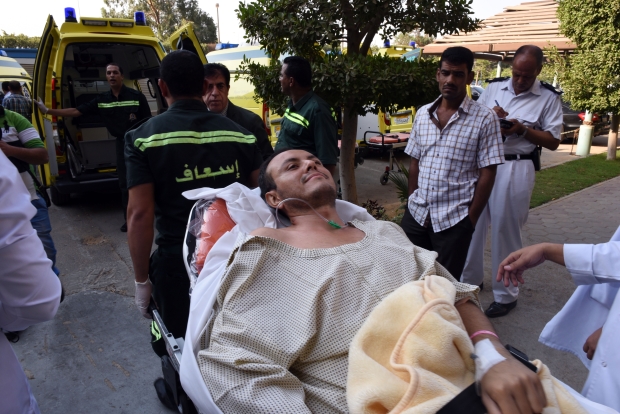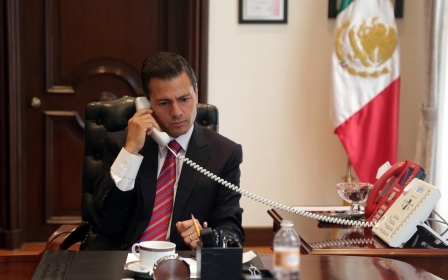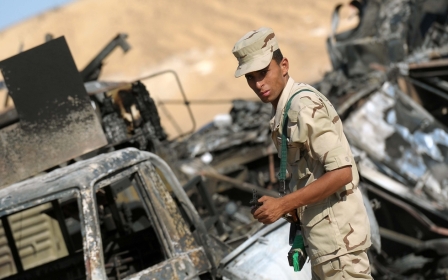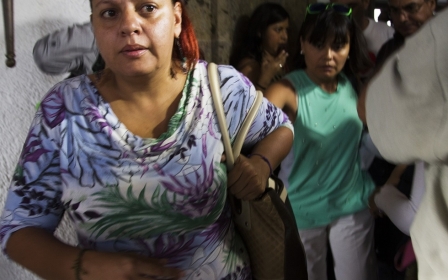'I love you' last words of Mexican killed in Egypt attack
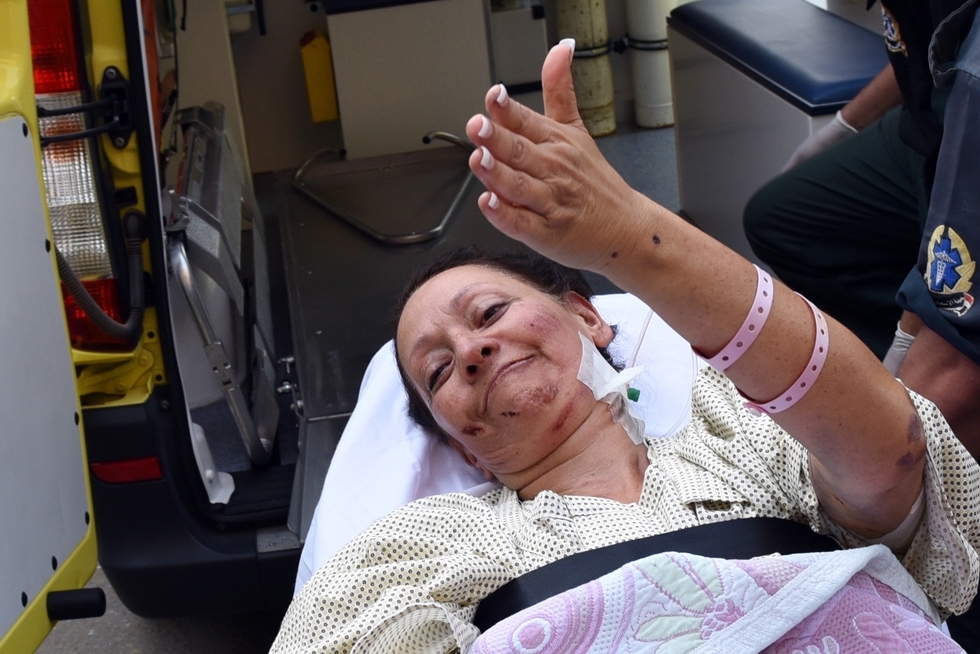
MEXICO CITY - A Mexican tourist who survived an airstrike in Egypt recalled a harrowing three-hour bombing that killed eight compatriots, including her husband, whose dying words to her were "I love you".
Susan Calderon's dramatic account was published in the El Universal newspaper on Thursday, hours before she and five other survivors headed home on a Mexican government plane with the foreign minister.
Survivors have told Mexican diplomats that they came under fire from an airplane and helicopters in Sunday's attack, which was condemned by Mexican President Enrique Pena Nieto, who demanded a swift investigation.
"You could see the viciousness with which they came and went ... We were bombed about five times, always from the air. It all lasted some three hours," said Calderon, who was wounded in both arms.
Her husband, Luis Barajas, was one of the eight Mexican tourists who died in the attack. Four Egyptian guides were also killed.
"There was nowhere to hide, nowhere to run ... I don't know if it was rockets or bombs or whatever," said Calderon, who was applying sunscreen on her spouse when the tourist convoy came under fire during a lunch break.
Her husband was found alive when rescue workers arrived, she said.
"I saw my husband when they put me on a stretcher to take me to the hospital. I heard him tell me he loved me, and I told him I do to. And then I heard nothing from him again," Calderon said. "It was supposed to be the trip of our lives."
The couple had been married for 20 years and ran a hospital equipment business in the western city of Guadalajara. They did not have children.
Mexico demands probe
The six survivors left a Cairo hospital where they had been treated for wounds and boarded the Mexican presidential plane with Foreign Minister Claudia Ruiz Massieu.
Families of the victims were also with her while Ruiz Massieu asked Mexican diplomats to speed up paperwork to repatriate the dead.
"I'm very grateful to the Egyptian people and the Mexican people for all their attentiveness," said Maricela Rangel Davalos as she was being placed into an ambulance en route to the airport.
"I'm glad to go home," said another.
Ruiz Massieu came to Cairo demanding answers on the attack, which saw Egyptian security forces target the tourists in the Western Desert after mistaking them for fighters.
The incident has proven embarrassing for Egypt, which relies heavily on tourism revenues.
At a news conference with Ruiz Massieu on Wednesday, her Egyptian counterpart Sameh Shoukry vowed a "transparent" investigation.
But the state prosecutor, whose office handles investigations, has placed a gag order on reporting details of the probe, the official MENA news agency reported.
Egypt said the tourists had entered a restricted area in the Western Desert and were "mistakenly" killed as security forces chased fighters who were suspected to have abducted and beheaded an Egyptian.
Hassan al-Nahla, the head of Egypt's tour guides union, said the group had received all the required permits and set off with a police escort from Cairo to the Bahariya oasis, roughly 350 kilometres away.
They had stopped along the way and driven two kilometres into the desert for a picnic when they were attacked.
The Western Desert is popular with tour groups, but is also a hideout for armed groups, with Western embassies warning against non-essential travel there.
Last month, Egypt's branch of the Islamic State (IS) group, which calls itself Sinai Province, beheaded a Croatian oil worker, who was abducted near Cairo, at the edge of the Western Desert.
The IS affiliate has killed hundreds of soldiers since 2013, when the army removed democratically elected president Mohamed Morsi in a military coup and launched a bloody crackdown on his supporters.
New MEE newsletter: Jerusalem Dispatch
Sign up to get the latest insights and analysis on Israel-Palestine, alongside Turkey Unpacked and other MEE newsletters
Middle East Eye delivers independent and unrivalled coverage and analysis of the Middle East, North Africa and beyond. To learn more about republishing this content and the associated fees, please fill out this form. More about MEE can be found here.


